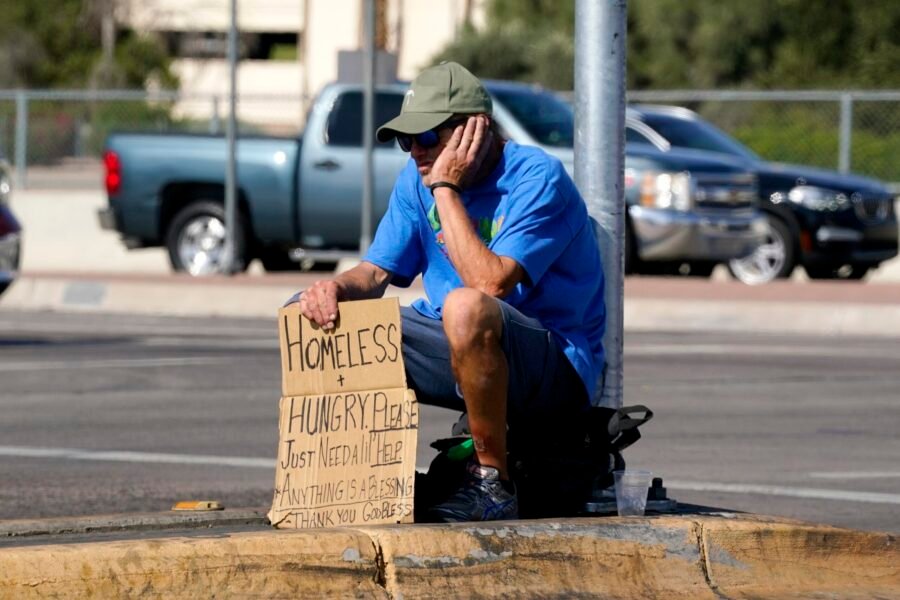Business
Criminalization Fails the Homeless: The Real Solution Lies in Housing

A year after the Supreme Court allowed crackdowns on homeless individuals, the crisis has escalated dramatically. Recent events saw around 100 unhoused people evicted from Oregon’s Deschutes National Forest, facing fines of $5,000 and potential jail time for non-compliance.
This forest once served as a last refuge for many. Residents lived in broken-down RVs and cars, as shelters in nearby Bend were at full capacity, with average home prices nearing $800,000. The rising rent has rendered local housing increasingly unaffordable.
Chris Dake, a resident of the encampment, expressed the frustration felt by many: “There’s nowhere for us to go,” he stated in an interview.
This struggle resonates in Grants Pass, where a similar ruling came into play. The Supreme Court’s decision in *Grants Pass v. Johnson*, a year ago, allowed local governments to criminalize sleeping outdoors when shelters were unavailable. The aftermath has seen the persistence of homelessness and its criminalization.
Currently, a full-time minimum wage worker cannot afford stable housing in many areas across the nation. The federal minimum wage has stagnated at $7.25 since 2009, pushing half of all tenants into unaffordable rent scenarios.
Today, over 770,000 individuals are without housing in the U.S.—a record high. Many are perilously close to joining their ranks.
The Supreme Court’s ruling has facilitated harassment of individuals lacking permanent shelters, resulting in fines and arrests that complicate the path to stable employment and housing.
Among America’s major cities, Phoenix records one of the highest homelessness rates, with reports of systemic mistreatment of unhoused individuals by the police. Following the *Grants Pass* precedent, approximately 150 cities have either enacted or reinforced anti-camping laws, including Phoenix.
Local authorities have intensified a practice known as “sweeps,” forcibly clearing encampments. Justifications often cite safety and sanitation, but these actions sever connections to vital services, leaving individuals more vulnerable. Basic survival items are frequently confiscated by authorities, and studies indicate that sweeps are both costly and ineffective.
Such punitive measures fail to address the underlying issue: the critical shortage of affordable housing.
Regrettably, federal policies continue to miss the mark. An executive order from President Trump led to the clearing of over 30 encampments in Washington, D.C., while his 2026 budget proposal aims to slash federal rental assistance for millions by 43%—a move criticized for prioritizing tax cuts for wealthy individuals.
The commodification of housing, treated as a profit-driven enterprise, hampers any resolution to homelessness. Housing is deemed a basic human right, yet the U.S. has yet to recognize this fully. Addressing homelessness is achievable within our lifetimes, provided there is a commitment to ensuring safe, affordable, and permanent housing for all.
Experts have long advocated for humane solutions such as Housing First, which provides permanent residence without conditions, complemented by supportive services.
Despite significant challenges, communities are mobilizing. In Grants Pass, disability rights advocates are contesting public camping restrictions, while other groups are forming unions for tenants and unhoused individuals, organizing rent strikes, and advocating for public housing options that remain affordable and insulated from the pressures of the private market.
The ruling in *Grants Pass* may have ushered in new hardships, but local governments still possess the agency to implement compassionate solutions. Now is the time to demand effective housing strategies.
Farrah Hassen is a columnist, J.D., writer, policy analyst, and educator.


















